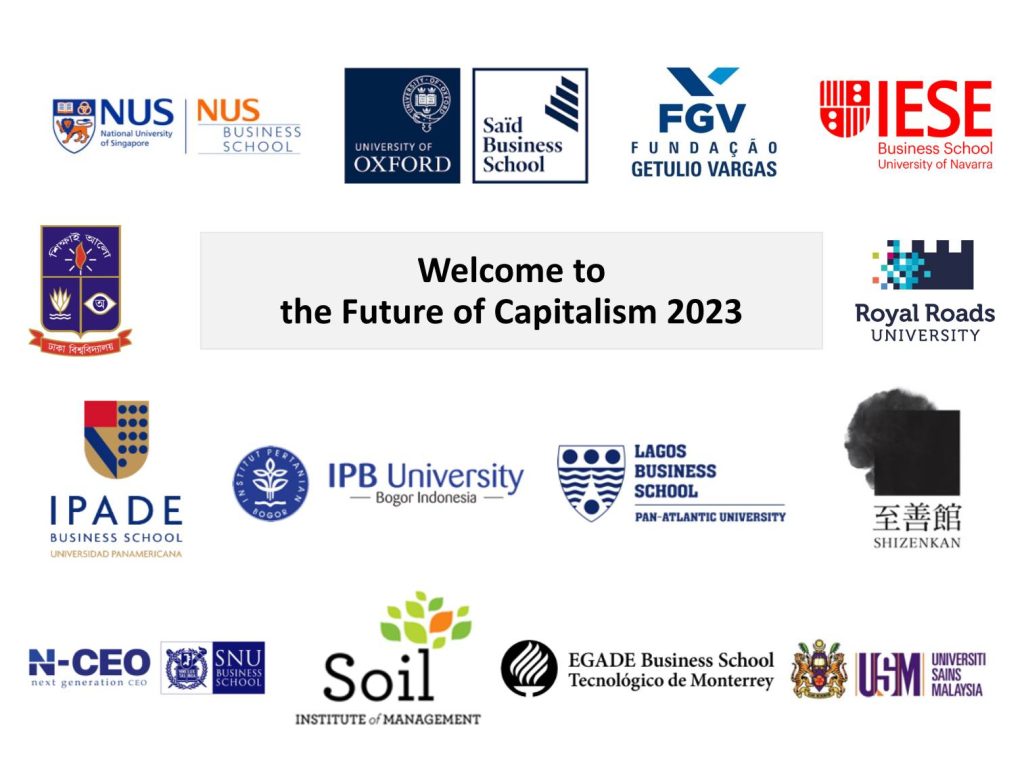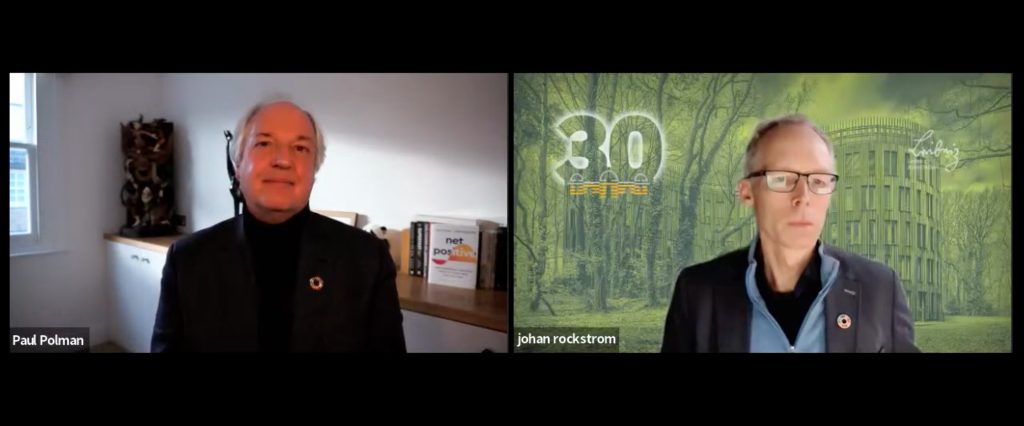
Shizenkan University, in partnership with IESE Business School (Spain) and with the participation of 10 schools around the world, launched the 3rd edition of the global online course “Future of Capitalism: Exploring Roles and Responsibilities of Business and Leaders” (FOC) on 31 January. Designed to be a catalyst for change in global management education, the programme is a virtual field trip that brings together 180 MBA students from around the world in search of the answer to the question “How can we become a good ancestor?
The session began with welcome messages from the project initiators, Professor Franz Heukamp (Dean of IESE Business Schools) and Professor Tomo Noda (President of Shizenkan University).
The first guest speaker of the session was Professor Johan Rockström, Director of the Potsdam Institute for Climate Impact Research, who gave a scientific overview of the current situation of humanity.
Humanity has reached a critical and delicate juncture and needs to reconnect the global economy, capitalism, to planet Earth. We are pushing the planetary boundaries and without immediate action there is a risk of a polycrisis, where several crises occur simultaneously, interacting and reinforcing each other. Professor Rockström also touched on the pathways to a safe landing within the planetary boundaries, we have the technologies, but we need concerted efforts to rapidly scale solutions to get back to the safe operating space.
Paul Polman, one of the most respected business leaders of our time, campaigner and co-author of Net Positive, took the stage after Prof Rockström. Paul Polman, a key supporter of the Future of Capitalism project, shared his perspective on the challenges facing humanity and the role of business leaders in steering our future towards a sustainable existence within planetary boundaries. According to Paul Polman, running a business today is no longer just about thinking about the performance of your business, but also about how well the system in which your business operates is functioning. Paul Polman’s new book, Net Positive, asks the question “How can we profit from solving the world’s problems rather than creating them? And the follow-up question, “Is the world really better off because of your business?”
Mr Polman argues that for companies to really thrive and do well in the future, they need to think regeneratively, restoratively, reparatively, which is an essence of being “net positive”. And a company can only become net positive if it has leaders who have the courage to challenge business as usual, encouraging everyone to start with themselves.
The keynotes were followed by a dialogue with the students.

In the next session, Caroline Le Meaux, Global Head of ESG Research, Engagement and Voting, Amundi, and Professor Stefano Zamagni, Professor of Economics, University of Bologna and President of the Pontifical Academy of Social Sciences, will discuss ESG investing and whether it is a panacea or a placebo.
